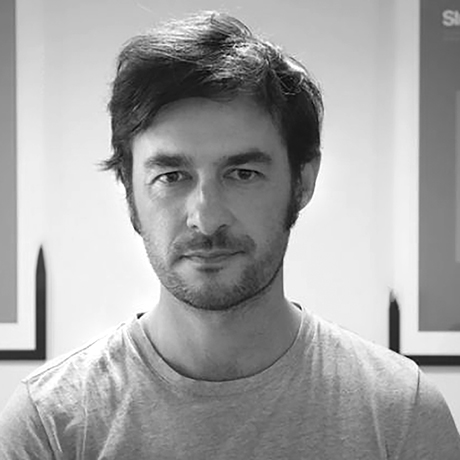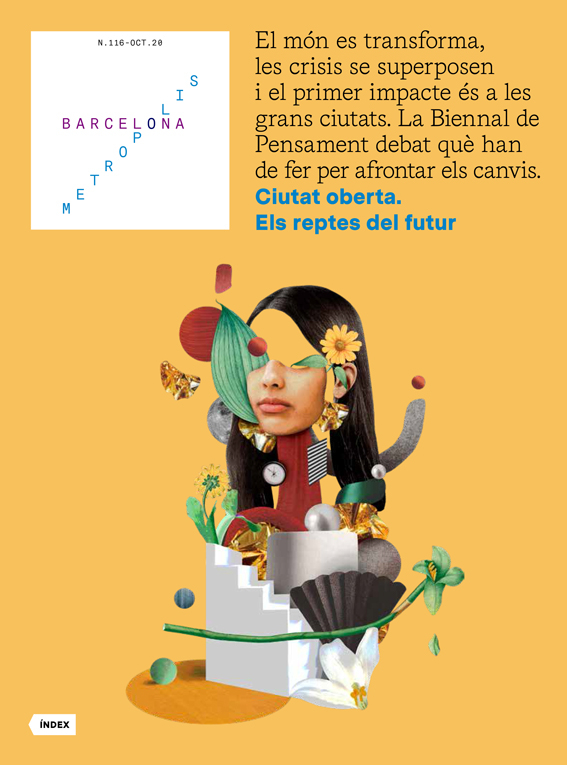The city is bare: nature as necessity
Open city. The challenges of the future
- Dossier
- Oct 20
- 7 mins

The lockdown triggered by the pandemic has revealed the shortcomings of urban living as we knew it to us. The rural world now offers tranquillity and contact with nature that we do not find in the urban setting but, paradoxically, the population is increasingly concentrated in cities. Something must be wrong with the ideas we assert when they make us act against our needs and our values.
The general upheaval caused by the COVID-19 pandemic has reflected the scale of values that governed the citizens of the year 2020. Some of the most deep-seated beliefs in the collective imagination, such as the need to travel to one’s workplace, have proven to be unfounded, while other aspects of our lives that perhaps we did not value as they deserve have proven themselves to be irreplaceable, such as in-person interaction with our family and friends: video calls are simply not the same.
Among the latter, the forced lockdown in our (small) city homes has reminded us that, as the animals that we are, besides food and shelter, we still have needs related to space. We need to move, as was evident by the onslaught of occasional runners that flooded the footpaths on the first day exercise was allowed. And, above all, we need contact with nature. Open spaces with vegetation and life that dot city maps are not decorations or easy resources for urban planners with little imagination, but a source of recreation that no electronic stimulus can replace. It is no coincidence that one of the fiercest criticisms levelled against the management of some city councils was the delay in reopening urban parks: people needed trees.
As for the need for contact with green spaces, which seems to have surprised many humans, we have ample evidence around us. The most obvious proof is the “risk of absconding”. In how many conversations after the easing of the lockdown restrictions have we heard the phrase “the next lockdown won’t catch me in the city”, if it haven’t uttered it ourselves? Without having to resort to towns and villages, real estate portals warn of the rise in demand for houses on the periphery with gardens and more square metres.
There are also purely physiological reactions. The dermatologist I visited last week for my sudden hair loss confirmed that I was not alone: the stress of the forced lockdown and the lack of vitamin D are leaving much of the population bald. Continuing to need direct sunlight to complete our biochemical cycles reminds us that, despite our space rockets and our food delivery apps, we aren’t that different from a geranium.
Cities have seamlessly been able to supply material goods, but they have proven powerless when it comes to meeting the “other” less tangible needs of their inhabitants.
There are also obvious signs on the economic front. Motorhome rental companies had their entire fleet booked out for the summer months ago; the idea of getting stuck inside the same four walls seems to be the last thing many holidaymakers want. Regarding small businesses, my florist friend confessed to me somewhat guiltily that the pandemic had been beneficial for her business: as soon as they let us out, people rushed to plant shops for something alive and green to make their homes more habitable. And I myself have testified to that in the flesh: the issue of Salvaje – the rural living magazine I run – that we published during the lockdown sold out before any of the previous issues, despite the difficulties posed by the lockdown to get hold of it. A magazine featuring a flower on its cover was a perfect target to satisfy the eagerness to spend money.
We have uncovered the Achilles’ heel of urban living as we knew it. At no point has the supply of food, water or medicine been in jeopardy, and the virus has not brought down the roofs over our heads, leaving us exposed to the elements. The presence of riders bringing food to our homes has reminded us that our material situation was far removed from the precariousness of an area affected by an armed conflict or a natural disaster. And yet, despite having these “basic” needs met, the city lockdown has been a period of collective anguish that is going to leave an indelible mark on the individual and collective psyche, the consequences of which remain to be seen. Cities, as the economically efficient machines that they are, have seamlessly been able to supply material goods, but they have proven powerless when it comes to meeting the “other”, less tangible and often forgotten, needs of their inhabitants.
Happiness is out there
As with food production, cities have long externalised contact with nature and time out to other spaces. In the very dynamics of the metropolis it is implicit that, to “slow down” or “take a break”, citizens must leave the city, head for the beach, the mountains or a small town and, after a few days, return “with their batteries charged” to settle back into the relentless pace of the high-speed economy.
But once mobility is restricted (as it was for the general population during the pandemic, but also as it is the rest of the time to groups with less purchasing power) and the resources of nature and tranquillity are no longer available, the model shows its shortcomings. In situations like this, the differences between the lifestyles of rural and urban areas become more pronounced, and this contrast may be the cause of those “risks” of absconding that we mentioned. It is commonplace that, in towns and villages, apart from enjoying greater food self-sufficiency, it is much easier to meet those “immaterial” needs for closeness to nature and a less frenzied pace for the simple fact that they are already part of its idiosyncrasy; however, we usually go here to “disconnect”.
In these fantasies of escaping to rural areas, small towns appear as places capable of fulfilling all the needs that cities cannot. Paradoxically, and despite how widespread these idealisations are, the percentage of the population living in cities is growing. Something is wrong with the ideas we are considering when they make us act against our value frameworks.
If we managed to embed the rural understanding that there is no boundary between the space inhabited by humans and the rest in the urban mindset, we would begin to put forward solutions to meet the need for nature in the city itself.
New ideas for new cities
It is more difficult to resolve than to identify the deficiency. When it comes to rethinking the design and function of cities with millions of people, the scales of the measures required are intimidating. Even so, proposals that are not new are beginning to emerge in public discourse, but they have found a new opportunity to be heard in the crisis.
Superblocks or “15-minute cities” that are now emerging in public discourse, with their commitments to greater self-sufficiency, more space for pedestrians and green areas, or non-commercial social meeting places, may sound interesting to lay people in urban development matters like me, but at the risk of becoming cynical, are they not basically trying to replicate the way of life that is already practised in towns and villages? They may be starting points to take into consideration, but from my ignorance I think they run the risk of being insufficient if urban development changes are not accompanied by ideas similar to those that drive day-to-day life in rural areas.
If we managed to embed the rural understanding that there is no boundary between the space inhabited by humans and the rest, but that everything is part of a continuum, in the urban mindset, I think we would begin to put forward solutions to meet the need for nature in the city itself, without having to travel to other spaces and resort to “getaways”. If we start considering cities not only as generators of economy and culture, but also of well-being and tranquillity, perhaps the next crisis will be less harsh. And if instead of travelling to towns in search of closeness with our neighbours, an unhurried pace and connection with nature we bring these elements to the cities, perhaps we will end the false dichotomy of urban versus rural, wealth versus well-being. Let’s make our cities more like towns and bring nature closer so that we don’t have to choose between happiness and the rest.
The newsletter
Subscribe to our newsletter to keep up to date with Barcelona Metròpolis' new developments




